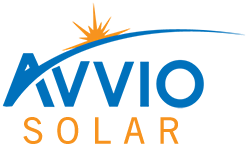According to an SEIA report, more Americans are planning to install solar arrays than ever.
Thanks to a growing interest in green energy and the financial incentives of solar installation, families are warming up to the idea of having solar panels on their rooftops. But as with most Americans, when you finally decide to install solar panels on your house, two questions will pop up in your head – should you purchase solar panels? Or should you lease them?
The answer depends a lot on what you prefer. But here are the facts that should help you make an informed decision.
The case for leasing solar panels
The biggest advantage of solar panel leases is that your upfront payment is minimum to nothing. You’ll be in a contract with the leasing company where you’ll enjoy the solar energy in your home for a good 25-30 years. The company takes care of the repair and maintenance during this time.
If you’re not looking to capitalize on the financial advantages of solar panels and just want a better alternative to monthly electricity bills, this is a good option. Leasing is also one of the better options if you don’t qualify for solar tax incentives. More on that later.
The downside of leasing
Despite the lucrative idea of getting solar panels easily, leasing has a few drawbacks.
The biggest issue with leasing is that you simply won’t be able to save or make as much money as with buying solar panels. Depending on your usage, your savings can be anything between 20% to 40%. There’s also the risk of incremental payment rates that further sink your savings in the long run.
Solar panel lease can get complicated if you’re planning to sell the house. You’ll either have to wait till the lease is up or go the buyout route. A major portion of home buyers isn’t comfortable carrying preexisting leases, dropping the value of the house in the market.
If the contract is not ironed out in the beginning, leasing can create a lot of friction between the parties. Your rooftop will be controlled by panels of the leasing company and the payment negotiations can get messy if there’s a new buyer in town. You might end up paying extra for shifting or uninstalling the panels.
Why purchasing solar panels is always the better option
If you want to install solar panels in your house, purchasing them with cash or a loan amount is always a better option.
Based on your energy consumption, a solar array can cost between $20,000-$30,000. It will reduce more than 50% of your electricity bills and in some cases, completely eliminate them. Solar panels are generally very durable and their maintenance cost over the decades are negligible.
If you don’t want to pay with cash, you can always take solar loans. Solar loans can be secured with your house as collateral. You can pay the interest over a period of 10-20 years and it’s tax-deductible. The good news is that solar panels start paying for themselves in about 5-7 years.
One of the biggest advantages of buying solar panels is the federal and state-level tax credits. In 2021 and 2022, the investment tax credit (ICT) is capped at 26% for residential and commercial projects and at 22% in 2023. From 2024, residential owners won’t be eligible for a tax credit. This means that the sooner you go solar, the better the return for you. Total installation cost can be reduced by 40%-50% if all the rebates are clubbed together.
Another significant benefit is that complete ownership of solar panels increases equity. Your house will grow in value, making it a lucrative option in the market.
Summing up
A recent SEIA report says that only 28% of residential solar was owned by third parties in 2020. That’s a steep decline from 62% in 2014. Better financial benefits, more loan options, and a sharp fall in solar panel costs have made leasing a less attractive option. So if you’re planning to go solar in 2021, buying would be the ideal decision.


